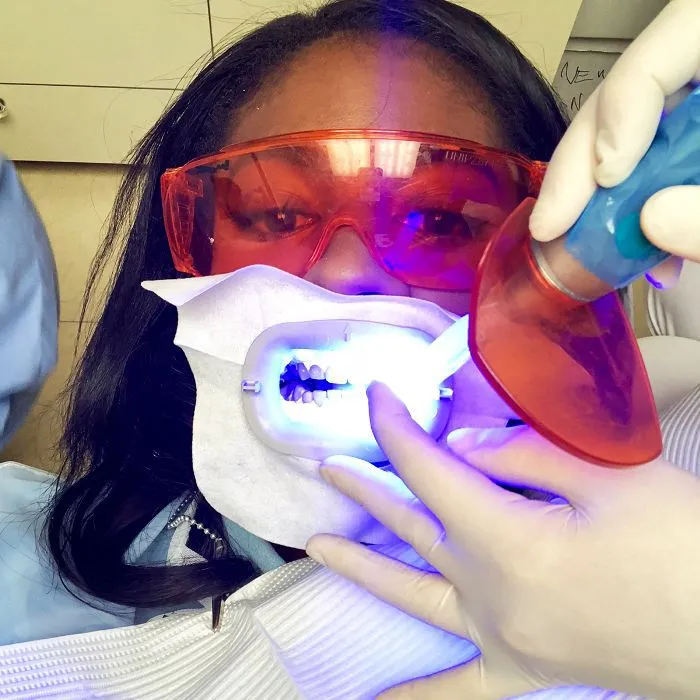What is Laser Teeth Whitening?
Laser teeth whitening, also known as power whitening or in-office bleaching, is a popular cosmetic dentistry procedure designed to brighten the shade of your teeth. Unlike over-the-counter whitening products, laser teeth whitening is performed by a dental professional, ensuring a controlled and effective treatment. The process typically involves the application of a strong bleaching agent, usually hydrogen peroxide, to the surface of the teeth, followed by the use of a laser to accelerate the whitening process. This method can produce significantly faster results compared to at-home treatments, making it a favored choice for those seeking immediate improvements in their smile. The procedure is generally safe when performed by a qualified dentist, but understanding the process and associated factors is crucial to determine if it is suitable for your needs.
How Does Laser Teeth Whitening Work?
The effectiveness of laser teeth whitening relies on the interaction between the bleaching agent and the laser light. The bleaching agent, typically a high-concentration hydrogen peroxide gel, is applied to the teeth’s enamel. The laser, which emits a specific wavelength of light, then activates the bleaching agent, accelerating the breakdown of the stain molecules. This process breaks down the stains that have accumulated in the enamel over time, caused by food, drinks, and other factors. The laser light helps the bleaching agent penetrate the enamel more effectively, leading to a faster and more pronounced whitening effect. The entire process is carefully controlled by the dentist to ensure the safety of the teeth and gums, while maximizing the whitening results.
The Laser Whitening Process
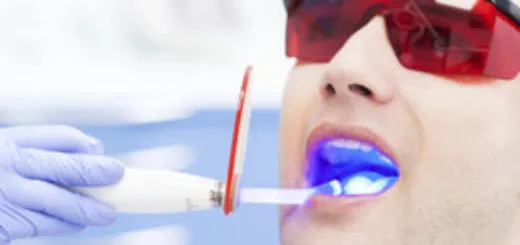
The laser whitening process typically begins with a thorough dental examination and cleaning to remove any plaque or tartar that could hinder the bleaching agent’s effectiveness. The dentist will then protect your gums and soft tissues with a protective barrier, such as a rubber dam. The bleaching agent is carefully applied to the surface of your teeth, and the laser is used to activate it. The laser light is typically applied for several minutes per section of teeth, and the process may be repeated multiple times during a single session. After the treatment, the dentist will remove the bleaching agent, clean your teeth, and provide you with post-treatment instructions. The entire procedure, including preparation, can take up to an hour or more, depending on the number of applications and the desired level of whitening.
Fact 1 Is Laser Teeth Whitening Safe?
Generally, laser teeth whitening is considered safe when performed by a qualified and experienced dental professional. The safety of the procedure depends on several factors, including the concentration of the bleaching agent, the duration of the treatment, and the patient’s oral health. Dentists take precautions to protect the soft tissues of the mouth, such as the gums and lips, during the procedure. It’s essential to have a comprehensive dental examination before undergoing laser teeth whitening to identify any pre-existing conditions, such as cavities or gum disease, that could impact the safety of the procedure. While the procedure is generally safe, it’s important to be aware of the potential side effects and take appropriate measures to minimize any risks.
Potential Side Effects of Laser Teeth Whitening
While laser teeth whitening is generally safe, some potential side effects are possible. These side effects are usually temporary and resolve within a few days of the treatment. Understanding these potential effects helps patients make informed decisions and manage their expectations. Common side effects include increased sensitivity, gum irritation, and, in rare cases, other issues. Dentists are trained to mitigate the risks associated with these side effects and provide appropriate care to minimize discomfort. Discussing these potential side effects with your dentist before the procedure is crucial to understanding what to expect and how to manage any issues that arise.
Sensitivity and Discomfort
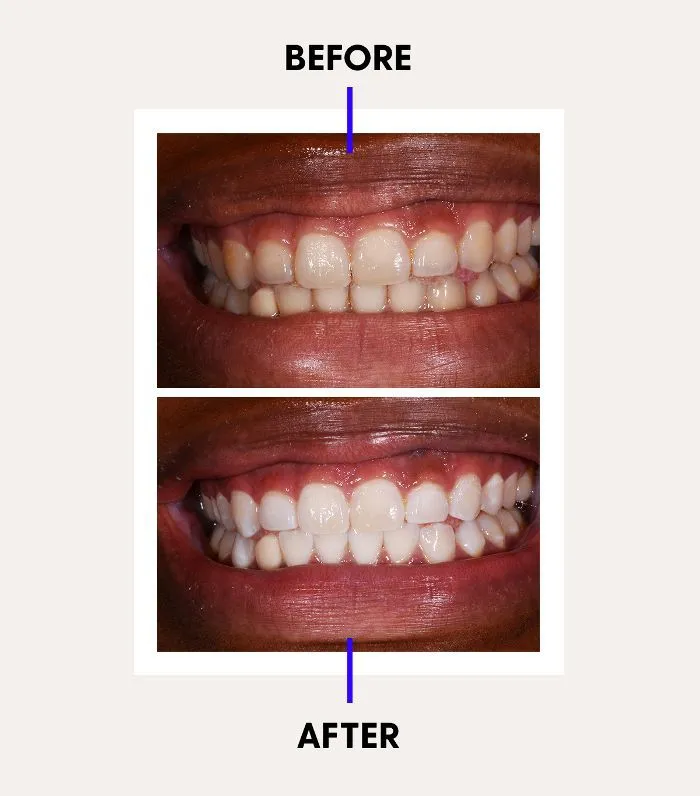
Tooth sensitivity is one of the most common side effects of laser teeth whitening. Many patients experience increased sensitivity to hot and cold foods and drinks immediately after the procedure. This sensitivity is usually temporary, lasting from a few hours to a few days. The bleaching agent can penetrate the enamel and reach the dentin, which contains nerve endings, leading to sensitivity. Dentists often recommend using a toothpaste specifically designed for sensitive teeth to help manage this side effect. Avoiding extremely hot or cold foods and drinks for a few days after the treatment can also help minimize discomfort.
Gum Irritation
Gum irritation is another potential side effect of laser teeth whitening. The strong bleaching agent used in the procedure can sometimes irritate the gums, leading to redness, swelling, and tenderness. Dentists take precautions to protect the gums during the procedure, but some irritation is still possible. The irritation is usually mild and resolves within a few days. Following post-treatment instructions, such as avoiding abrasive oral hygiene products and using a soft-bristled toothbrush, can help minimize gum irritation. In some cases, dentists may recommend the use of anti-inflammatory medications to reduce swelling and discomfort.
Fact 2 Is Laser Teeth Whitening Effective?
Laser teeth whitening is often highly effective, delivering significant improvements in teeth brightness. The results can vary based on the initial condition of the teeth and the type of stains present. The procedure can often lighten teeth by several shades in a single session, providing dramatic and immediate results. The effectiveness is also influenced by the concentration of the bleaching agent and the number of applications. People often see a remarkable improvement in their smile after just one treatment, boosting their confidence. However, it is essential to have realistic expectations and understand that the results can vary from person to person.
Factors Influencing Whitening Results
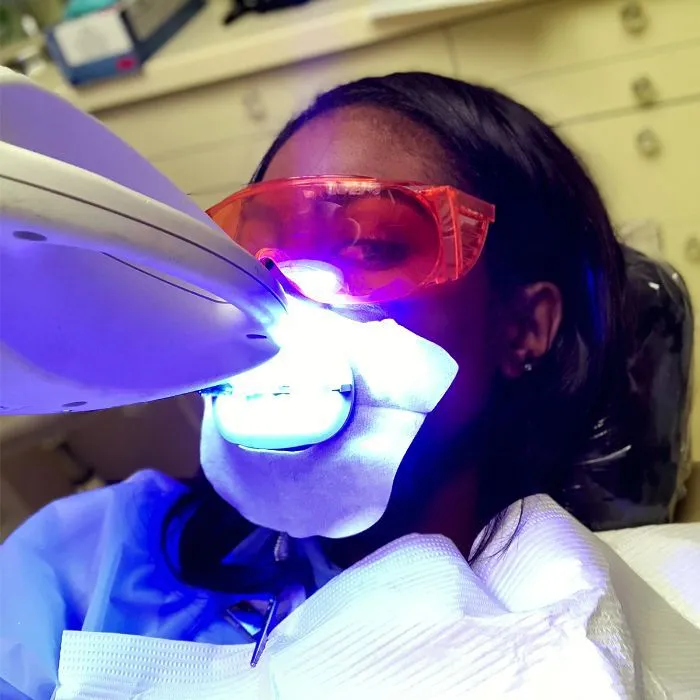
Several factors influence the effectiveness of laser teeth whitening. The type of stains is a major factor; stains from coffee, tea, and tobacco are typically more responsive to the treatment than stains caused by certain medications or dental conditions. The natural color of the teeth also plays a role, with some individuals having teeth that whiten more easily than others. The thickness of the enamel can also influence the results. The health of the teeth and gums is essential, as pre-existing conditions can impact the effectiveness of the treatment. Following post-treatment instructions, such as avoiding staining foods and drinks, helps maintain the results and maximizes the whitening effect. Regular dental check-ups and cleanings also contribute to long-term results.
Fact 3: Who is the Ideal Candidate?
The ideal candidate for laser teeth whitening is generally someone with healthy teeth and gums who has stains from food, drinks, or age. Individuals with discolored teeth who desire a brighter smile are typically good candidates. However, it is crucial to have a dental examination to ensure there are no underlying issues that could impact the safety or effectiveness of the treatment. Patients with existing dental work, such as fillings, crowns, or veneers, should be aware that the whitening agent will not change the color of these restorations. The dentist will assess the patient’s overall oral health and discuss their expectations to determine if laser teeth whitening is the right choice.
Considerations for Patients
Before undergoing laser teeth whitening, patients should consider several factors. Pregnant or breastfeeding women are generally advised to postpone the procedure. Patients with sensitive teeth or gum disease should discuss their concerns with their dentist. It’s essential to have realistic expectations about the results, as the degree of whitening can vary. Patients should also be prepared to follow post-treatment instructions, such as avoiding staining foods and drinks and maintaining good oral hygiene. It’s important to disclose any medications or medical conditions that could affect the treatment. A comprehensive discussion with the dentist will help determine if laser teeth whitening is the right choice and provide the best possible outcome.
Fact 4: Laser Teeth Whitening vs Other Methods
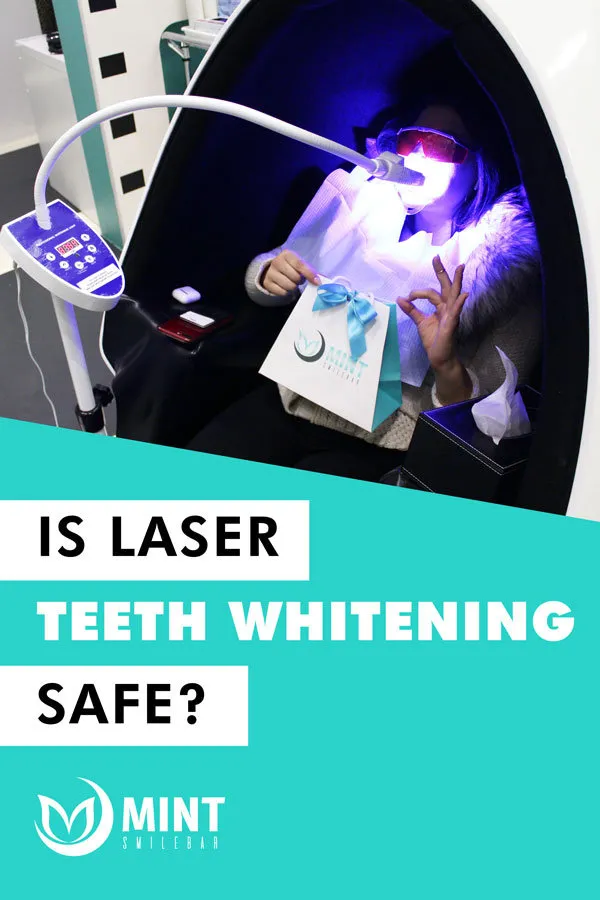
Laser teeth whitening offers several advantages compared to other teeth-whitening methods. The most notable advantage is the speed of the treatment; in-office laser whitening provides immediate results, often in a single session. This is in contrast to at-home methods, which can take several weeks or months to produce noticeable results. The concentration of the bleaching agent used in laser whitening is usually higher than that used in at-home products, leading to more dramatic whitening. The procedure is also performed under the supervision of a dentist, ensuring safety and minimizing the risk of complications. However, other methods, such as at-home whitening kits or whitening toothpaste, may be more affordable or convenient for some individuals.
Advantages of Laser Teeth Whitening
The primary advantage of laser teeth whitening is the speed and effectiveness of the treatment. Immediate results can boost confidence and provide a quick solution for those seeking a brighter smile. Another advantage is the supervision of a dental professional. The dentist can monitor the procedure, ensuring safety and minimizing the risk of adverse effects. Laser whitening can also target more stubborn stains than at-home methods. The dentist can customize the treatment based on the patient’s needs and the type of discoloration. Compared to other methods, laser teeth whitening offers a more controlled and predictable outcome. This makes it a popular choice for those who want fast, effective, and professional teeth whitening.
Fact 5 What to Expect After Treatment
After laser teeth whitening, you can expect your teeth to be significantly brighter. The results are typically immediate, with teeth several shades lighter. However, it’s important to understand that the final shade may stabilize a few days after the treatment. Some people may experience tooth sensitivity or gum irritation, which is usually temporary and resolves within a few days. You will receive post-treatment instructions from your dentist, which may include recommendations for toothpaste for sensitive teeth and a list of foods and drinks to avoid. These instructions will help maintain the results and minimize potential side effects. It’s essential to follow these instructions carefully to ensure a successful outcome.
Post-Treatment Care
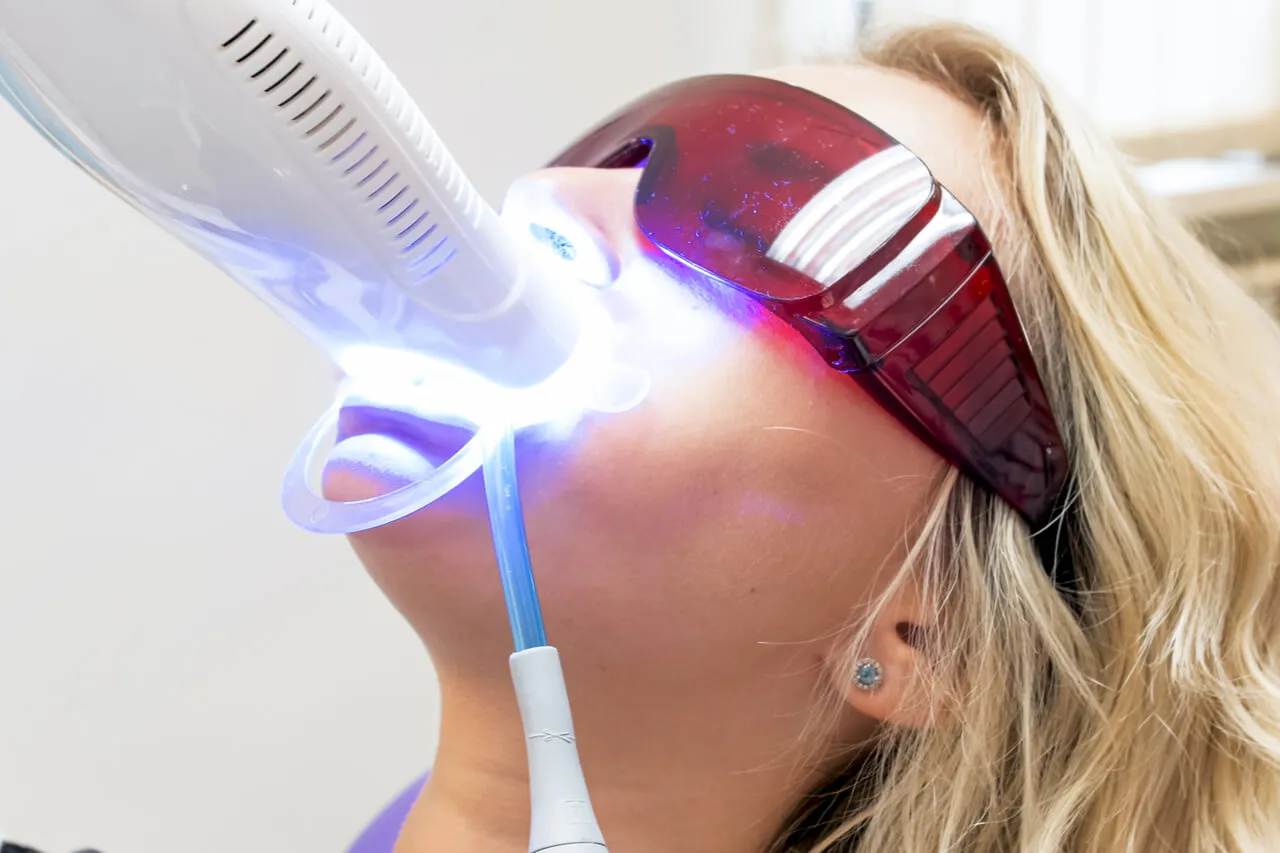
Post-treatment care is crucial for maintaining the results of laser teeth whitening. Your dentist will provide specific instructions, but some general guidelines apply. It’s important to avoid foods and drinks that can stain your teeth, such as coffee, tea, red wine, and dark-colored berries, for at least the first 48 hours after the treatment. Using a toothpaste designed for sensitive teeth can help manage any discomfort. Maintaining good oral hygiene, including brushing and flossing regularly, is crucial. Avoid smoking and chewing tobacco, as these can stain your teeth. Regular dental check-ups and cleanings are also essential to monitor the results and maintain your bright smile.
Maintaining Your Results
To maintain the results of your laser teeth whitening, several strategies can be used. Avoid or minimize the consumption of staining foods and drinks. If you consume these items, rinsing your mouth with water immediately afterward can help. Maintain good oral hygiene by brushing and flossing regularly. Consider using a whitening toothpaste or mouthwash as part of your routine. Regular dental check-ups and cleanings are essential for removing stains and maintaining your bright smile. Your dentist may also recommend touch-up treatments periodically to maintain the desired results. Following these strategies will help you enjoy your whiter teeth for a long time, maximizing the investment in your smile.
